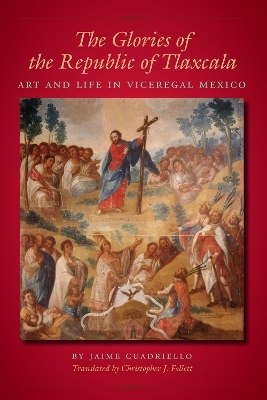LLILAS Translations from Latin America
1 total work
In 1996 Mexico's Museo Nacional de Arte acquired a remarkable dossier of text and images that included an eighteenth-century document requesting permission to carry out a specific iconographic program in Tlaxcala. This discovery planted a seed that grew into Jaime Cuadriello's landmark work Las glorias de la República de Tlaxcala, now available in English for the first time.
In 1789 don Ignacio Mazihcatzin, the Indian pastor of Yehualtepec, commissioned noted regional artist José Manuel Yllanes to do a set of oil paintings for his parish church. As a formal record of inquiry and approval between don Ignacio and the bishop of Puebla, the document includes depositions about the prospective paintings and watercolor sketches of them. From this material, art historian Cuadriello reconstructs both mythic and historic events in Tlaxcala's collective memory, providing an extensively contextualized study of art, society, religion, and history in eighteenth-century New Spain.
In its broad scope, the book reaches far beyond a mere deciphering of the symbolism of iconic images to provide a new social history of art for colonial Mexico. It will appeal to art historians, historians of colonial Latin America, and scholars interested in how indigenous communities took the initiative, through a mythic and prophetic discourse, to negotiate and claim their own place within New Spain.
